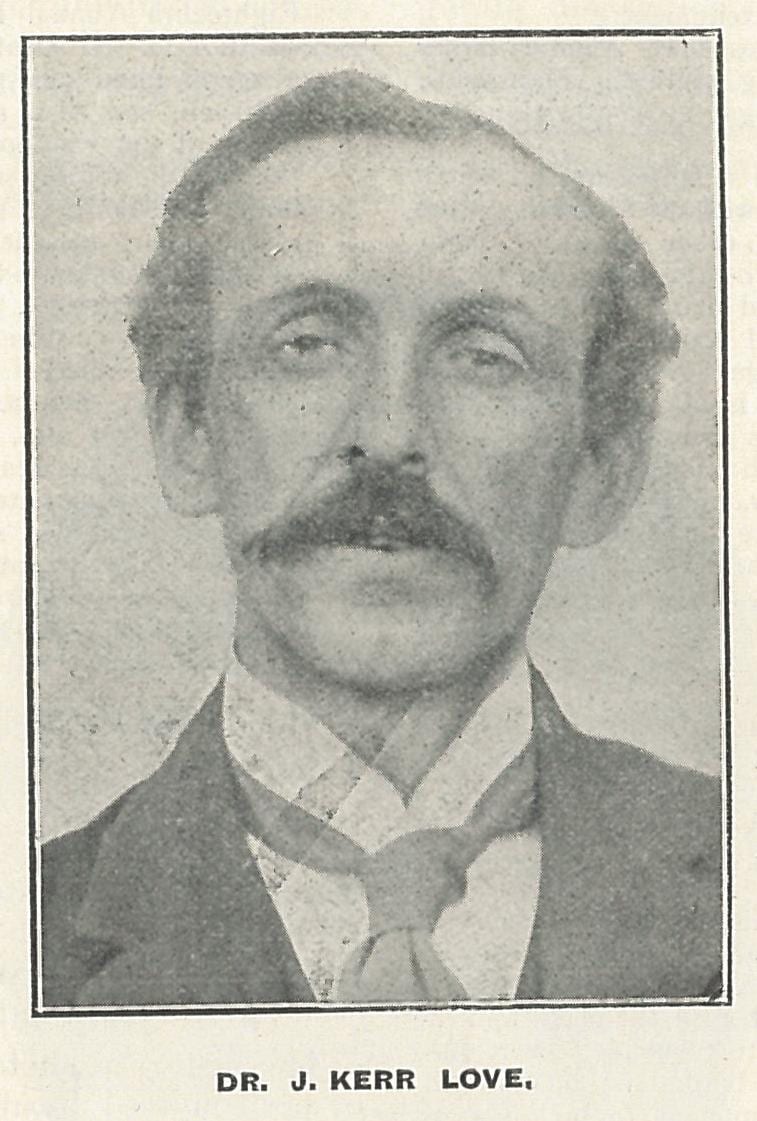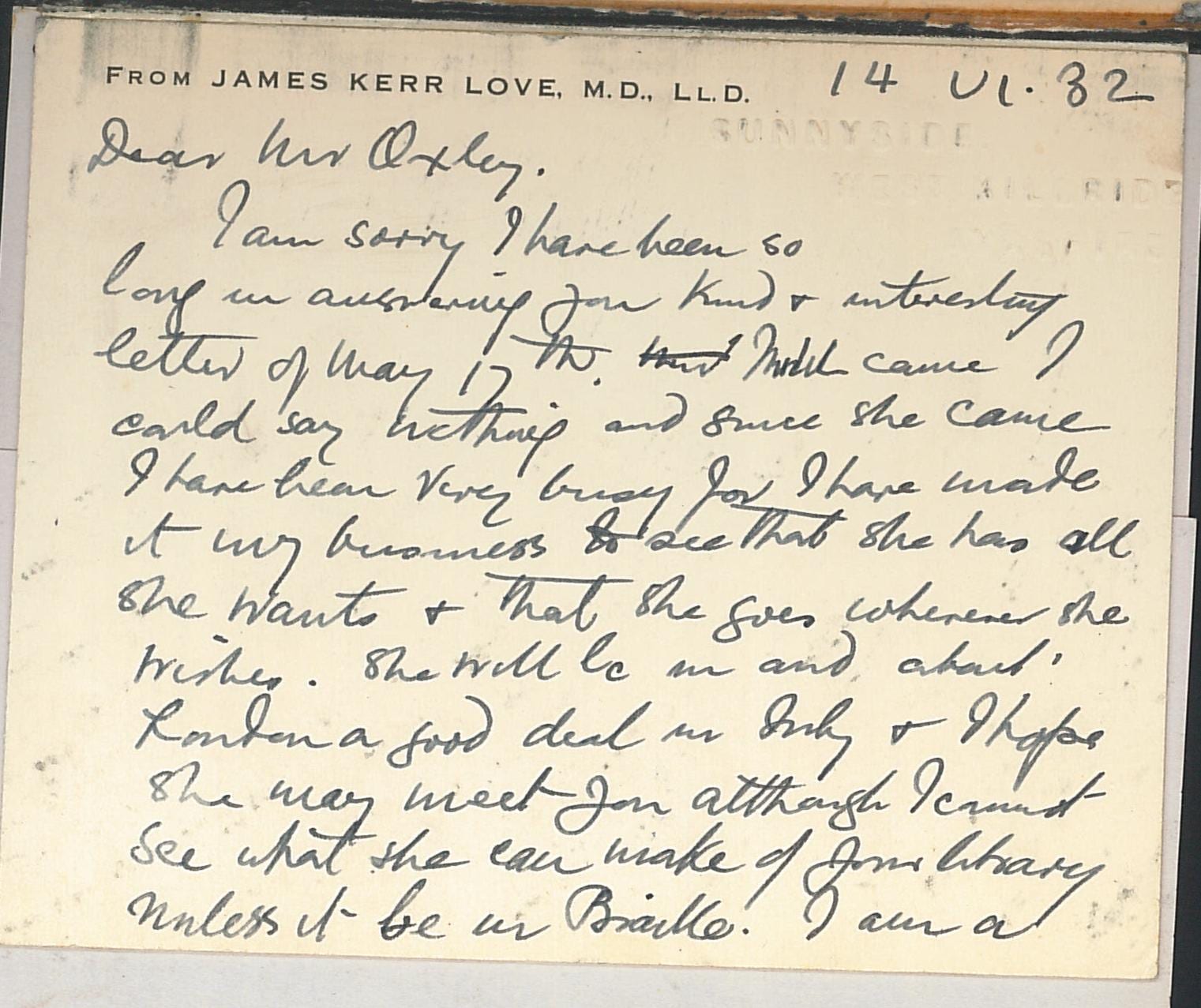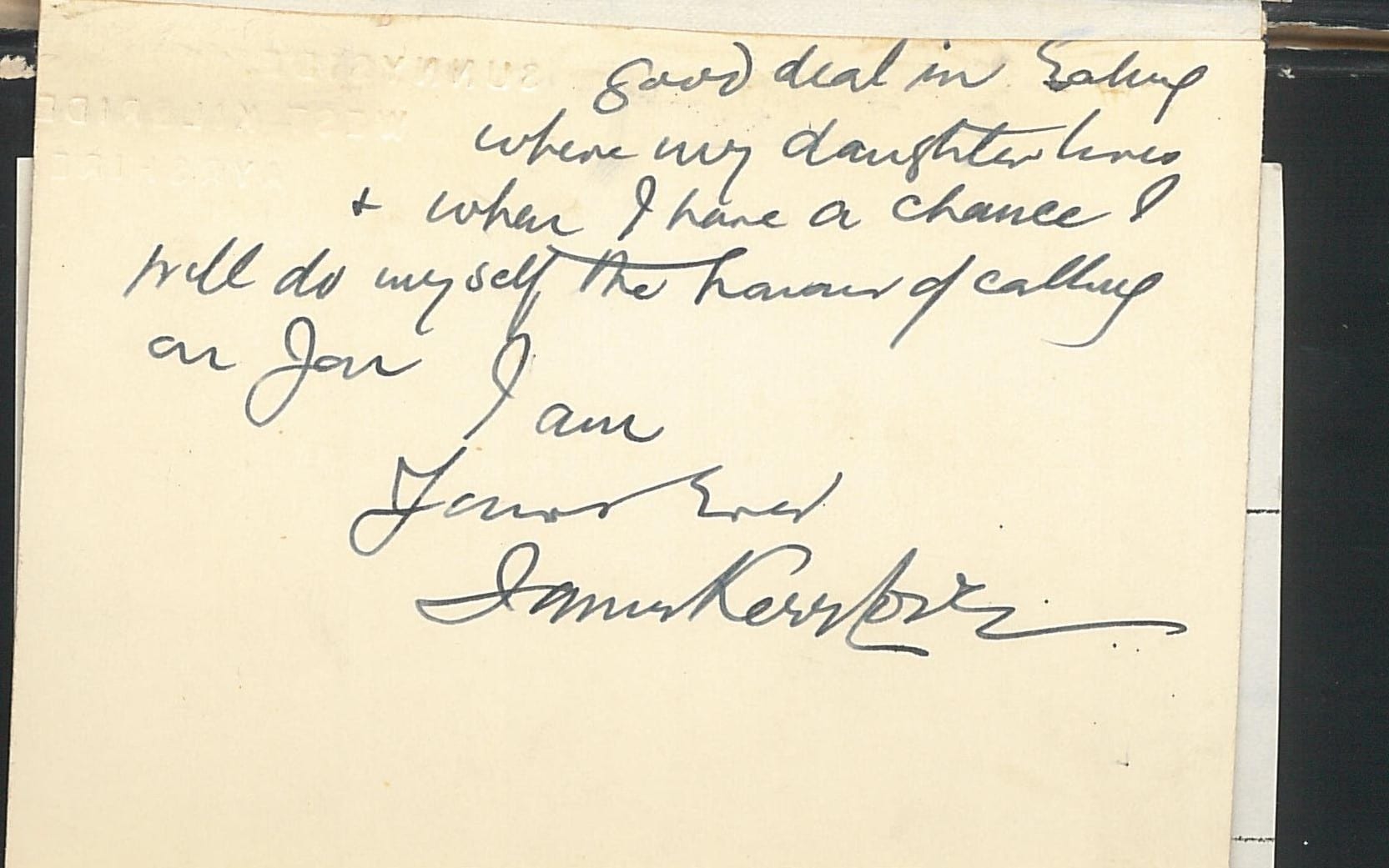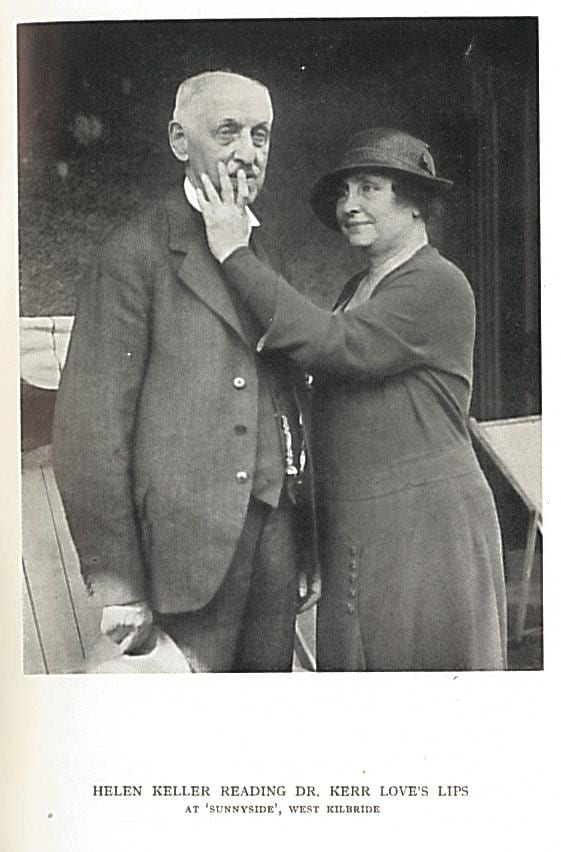James Kerr Love, Scottish Aurist, friend of Helen Keller, 1858-1942
By H Dominic W Stiles, on 22 July 2016
 James Kerr Love was one of the leading British otologists of the early 20th century, but will be remembered more for his involvement with deaf children and his friendship with Helen Keller than for his surgical skills (BMJ, 1942).
James Kerr Love was one of the leading British otologists of the early 20th century, but will be remembered more for his involvement with deaf children and his friendship with Helen Keller than for his surgical skills (BMJ, 1942).
It was this less spectacular work that lay nearest to his heart, and he spared himself nothing in its pursuit. […] In Dr. Kerr Love they had for many years a sympathetic and tireless champion, who wrote, lectured, and organized on their behalf with unflagging energy (ibid).
He was born in Beith, Ayrshire, a ‘son of the manse’. He was educated in Glasgow High School and the University of Glasgow, becoming an M.D. in 1888 writing his thesis, The Limits of Hearing (ibid, & BDM p.128). He was a surgeon at Glasgow Royal Infirmary for thirty years, and worked for the Glasgow Institution for the Deaf and Dumb. It was with his colleague, Dr. Addison, head of that Institute, and later Missioner for the deaf in Salisbury diocese, that he wrote the book Deaf Mutism (1896). His father-in-law was the Rev. Joseph Corbet or Corbett. He died on the 30th/31st of May, 1942, at Sunnyside, West Kilbride, Ayrshire.
It is hard to summarise Kerr Love’s views on education, and he does stress that it is a matter for teachers. Let us look at a couple of passages with his own words. At the end of his 1906 book, Diseases of the Ear, he says:
So far as State arrangements for the education of the deaf and dumb are concerned, it seems to the author that in every large community two schools for the deaf should exist:
1. One containing all the semi-deaf, the totally deaf with much residual speech, and the ordinary deaf mute who makes good progress on the oral method. Nothing but the oral method should be adopted in this institution. Signs should be used as little as possible, and finger spelling should be prohibited. All deaf children should pass their first year in this school.
2. A school min which the finger method or a combination of the oral and finger methods is taught. It is the writer’s opinion that at least half of the deaf-mute children would ultimately find their way into this second school (p.320).
He seems to have maintained this view that sign language was only good enough for those unable to learn spoken language, writing in 1936 (in The Deaf Child, p.109):
Some of the schools describe themselves as oral schools, some as combined schools. But if it is difficult to define a combined method, it is more difficult to define a combined method school.
I am now speaking of the institutions and not of the day-schools, and I state that, apart from those in Manchester and London, all the residential institutions I have visited are combined schools. Only in these two cities do arrangements exist for the separation of the defective deaf, who should be taught manually, from the ordinary deaf child, who should be taught orally (p.109).
It is probably unfair to give a couple of quotes out of the full context of his thought, and his views seem more nuanced than these quotations might make him appear. His work is worthy of consideration in the history of deaf education in the period from 1890 to the 1930s, as he was well known and widely read, being involved in the foundation of the National Bureau for Promoting the General Welfare of the Deaf. They published his monograph consisting of four essays, The Causes and Prevention of Deafness (1912).
We see him here with his friend, Helen Keller. She was such a celebrity, perhaps one of the first modern celebrities, that everyone wanted to meet her or be seen with her, poets, politicians, doctors etc. Selwyn Oxley contacted Kerr Love when she came to the UK in 1932, as he too wanted to meet her. I love Kerr Love’s reply: “I cannot see what she can make of your library unless it be in Braille.” These notes were later stuck into a copy of one of his books by Oxley.

 Kerr Love, J. & W.H. Addison. Deaf-mutism. 1904
Kerr Love, J. & W.H. Addison. Deaf-mutism. 1904
Kerr Love, J. & W.H. Addison. The education of the deaf and (so-called) dumb: two papers, by James Kerr Love and W.H.Addison. Glasgow: Philosophical Society of Glasgow, 1893.
Kerr Love, J. & W.H. Addison. A statement on the subject of methods of education, by James Kerr Love, with remarks thereon by W.H.Addison. Glasgow: James Cameron, 1893.
Kerr Love, James (ed). Helen Keller in Scotland, a personal record written by herself. 1933
Kerr Love, James. Deafness and Common Sense. 1936
Obituary: James Kerr Love, M.D., LL.D. The British Medical Journal, Vol. 1, No. 4250 (Jun. 20, 1942), p. 775
Deaf-mutism, by J. Kerr Love, & W.H. Addison, (review) The British Deaf-Mute p.126-8, Vol. 5 1895-6
 Close
Close

